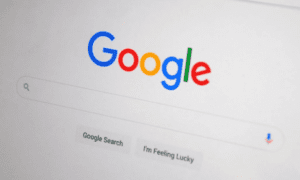The European Union’s second-highest court on Wednesday said a 1.5 billion euro ($1.7 billion) fine imposed on Google by regulators should be annulled, siding with the U.S. tech giant after it challenged the ruling.
TakeAway Points:
- On Wednesday, the European Union’s second-highest court ruled that a 1.5 billion euro ($1.67 billion) antitrust fine imposed on Google by regulators should be annulled.
- The European Commission, the EU’s executive arm, claimed in 2019 that Google had abused its market dominance in relation to a product called AdSense for Search.
- Alphabet Inc., Google’s parent company, has seen its stock price decline by over 20% from its July peak, recently hitting a six-month low.
- The decline is attributed to mounting regulatory pressures, including a federal judge’s ruling that Google monopolized the search market and potential actions by the Justice Department to break up the company.
Google defeats EU in court
The case stems from 2019, when the European Commission, the EU’s executive arm, said Alphabet owned Google had abused its market dominance in relation to a product called AdSense for Search. This product allowed website owners to deliver ads into the search results on their own pages.
Google acts as an intermediary, allowing advertisers to serve ads via search on third-party websites.
But the commission alleged that Google abused its market dominance by imposing a number of restrictive clauses in contracts with third-party websites, which ultimately prevented rivals from placing their search ads on these websites.
The commission fined Google 1.49 billion euros at the time. Google appealed, sending the case to the EU’s General Court.
The General Court said Wednesday that it “upholds the majority of the findings” but “annuls the decision by which the Commission imposed a fine of” nearly 1.5 billion euros. The court added that the commission “failed to take into consideration all the relevant circumstances in its assessment of the duration of the contract clauses” that it had deemed abusive.
A Google spokesperson said that it would review the full decision closely.
“This case is about a very narrow subset of text-only search ads placed on a limited number of publishers’ websites. We made changes to our contracts in 2016 to remove the relevant provisions, even before the Commission’s decision. We are pleased that the court has recognized errors in the original decision and annulled the fine,” the spokesperson said.
A spokesperson for the commission said it takes note of the judgement and will reflect on the possible next steps. The commission could appeal this decision which would send it up to European Court of Justice, the EU’s top court. There has been a slew of court cases involving the EU and U.S. tech companies reaching their conclusions recently.
This month, the ECJ upheld a 2.4 billion euro fine imposed on Google for abusing its dominant position by favoring its own shopping comparison service. And the same court ruled that Apple must pay 13 billion euros in back taxes to Ireland, ending a decade-long case.
Alphabet’s Stock Performance
Alphabet Inc., Google’s parent company, has seen its stock price decline by over 20% from its July peak, recently hitting a six-month low. This drop contrasts with other major tech companies, which have partially recovered from a summer downturn. The decline is attributed to mounting regulatory pressures, including a federal judge’s ruling that Google monopolized the search market and potential actions by the Justice Department to break up the company.
Despite these challenges, some investors view Alphabet’s current valuation as a buying opportunity. “Alphabet is the only name in the Magnificent 7 to trade at what we consider a discount,” said Gregg Abella, CEO of Investment Partners Asset Management. Alphabet’s stock is trading at around 18 times forward earnings, making it the cheapest among its peers and below its long-term average and the Nasdaq 100 index, which trades at 25 times earnings.
Eric Clark, portfolio manager at Accuvest Global Advisors, noted, “I’m feeling much better about getting paid to absorb some of that risk and volatility at the current valuation.” However, concerns about antitrust issues and increased competition from companies like OpenAI and Microsoft Corp. continue to weigh on investor sentiment.

































